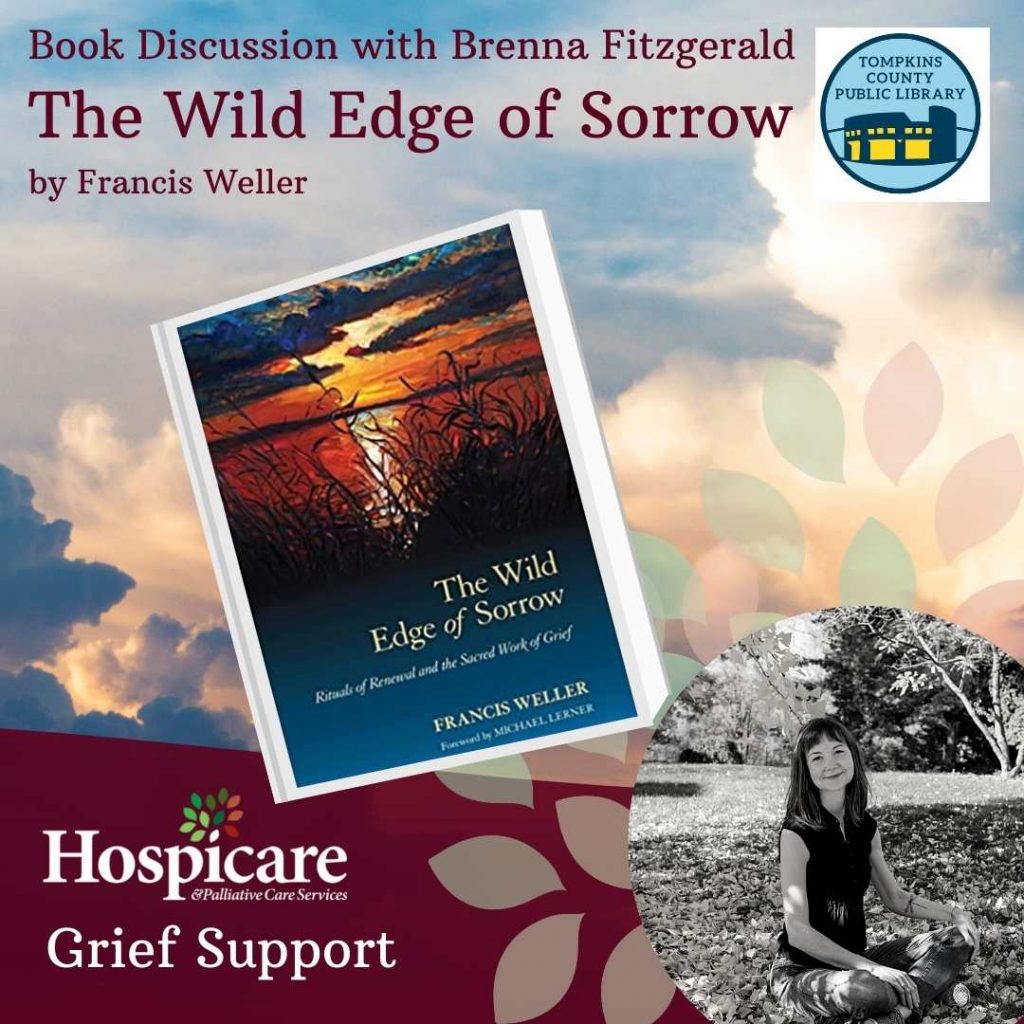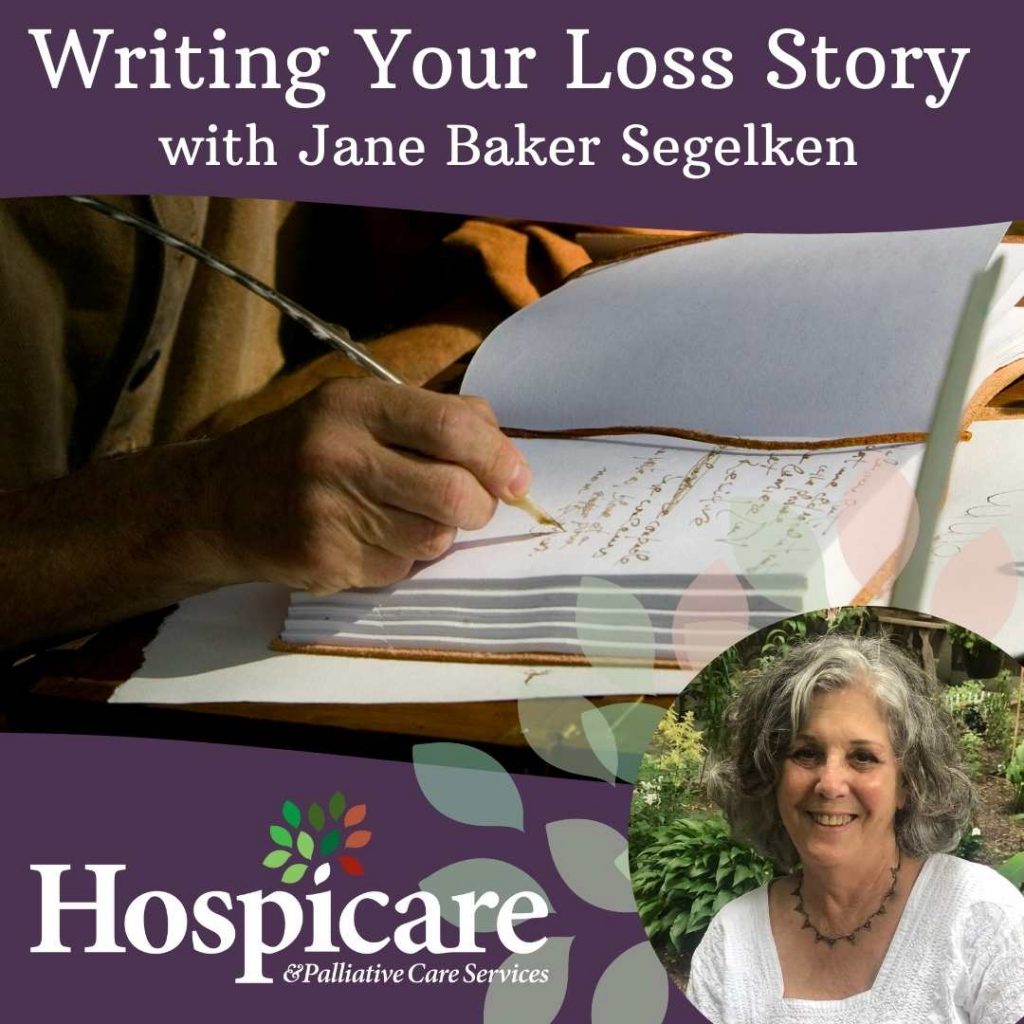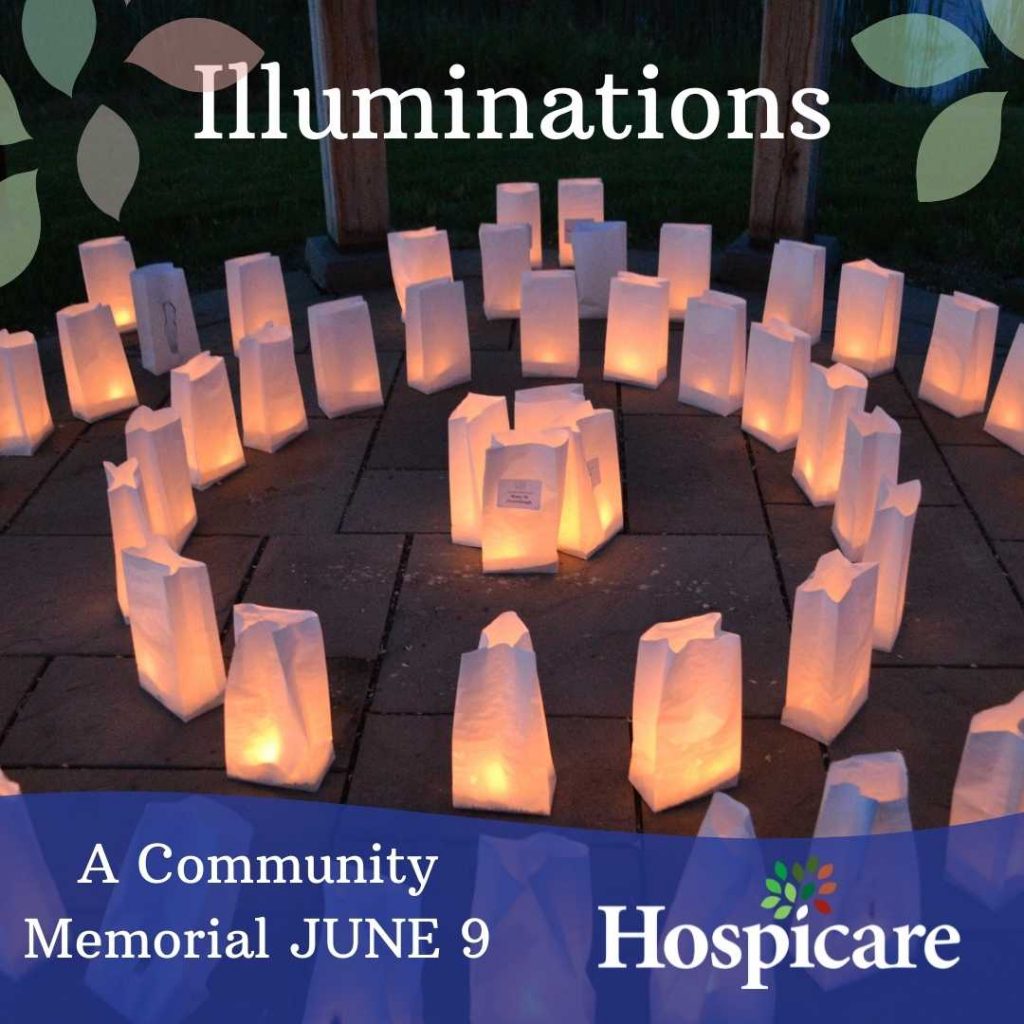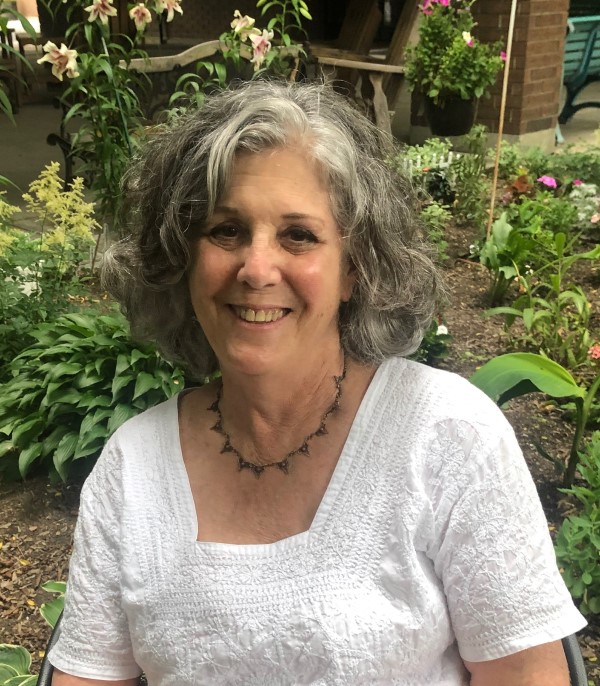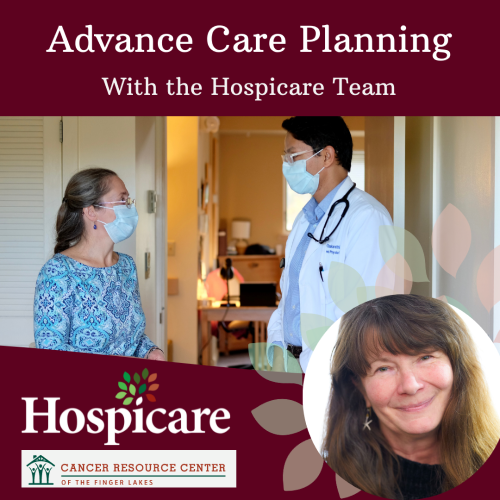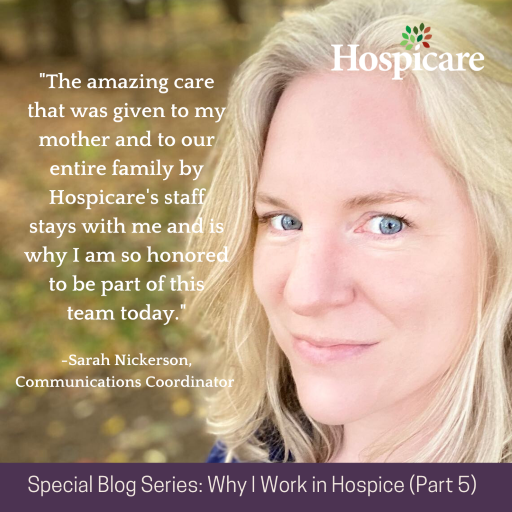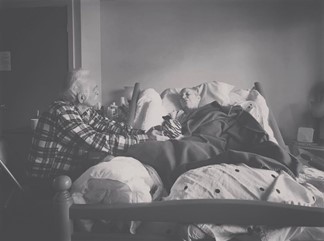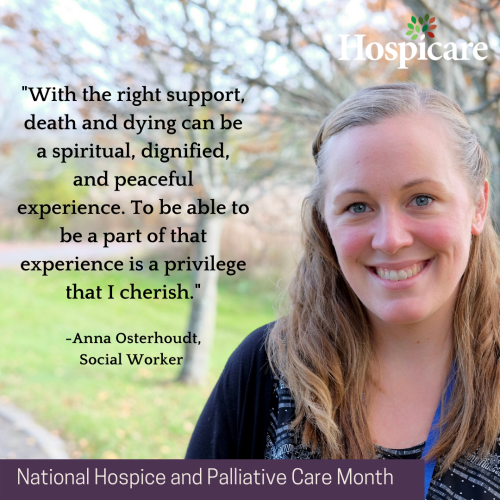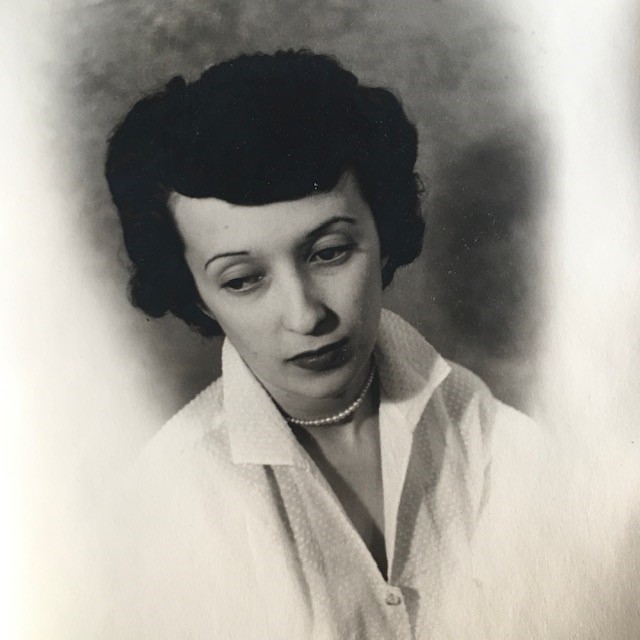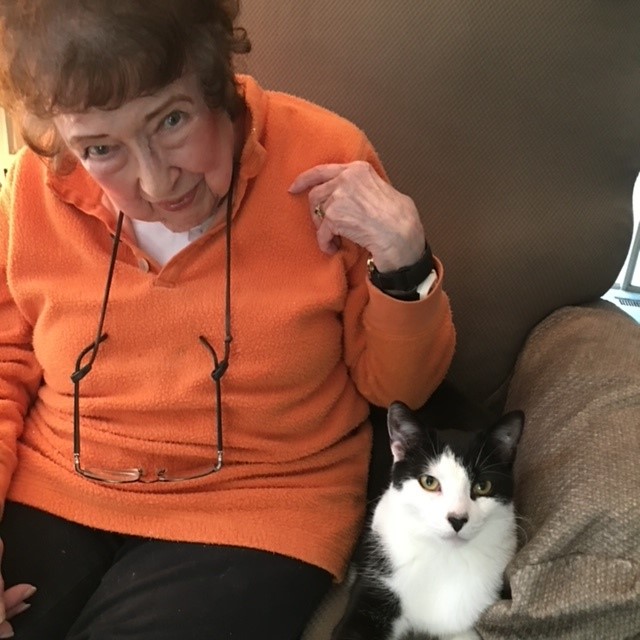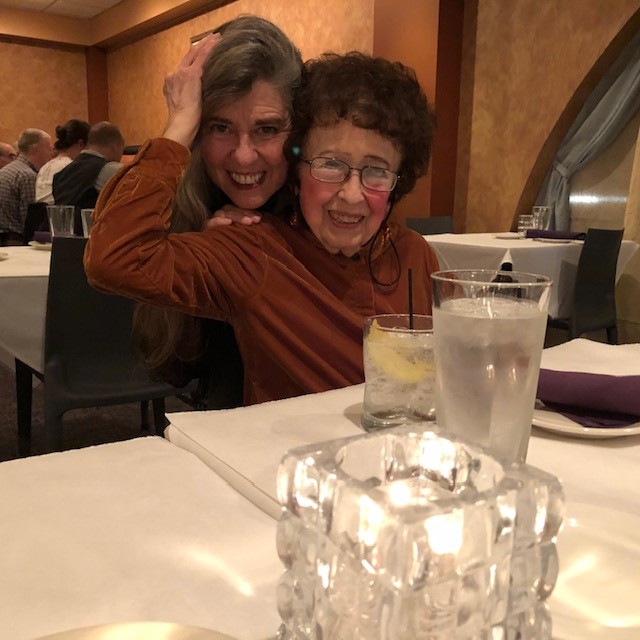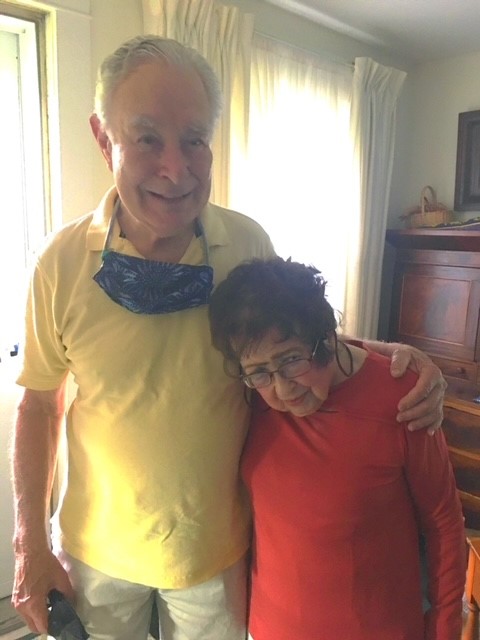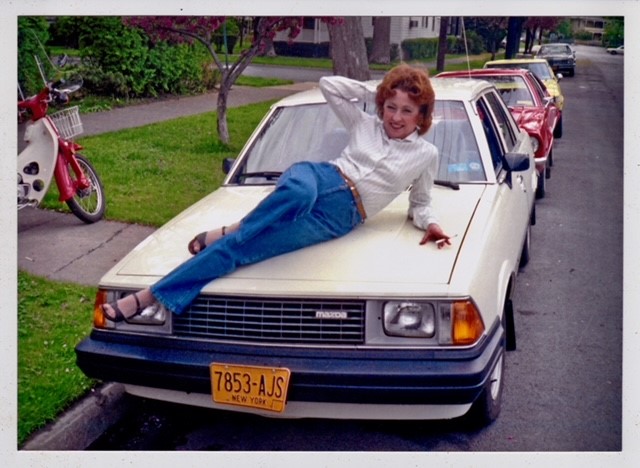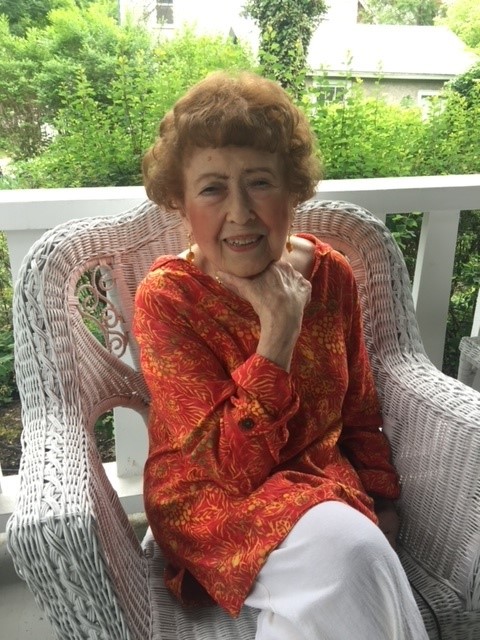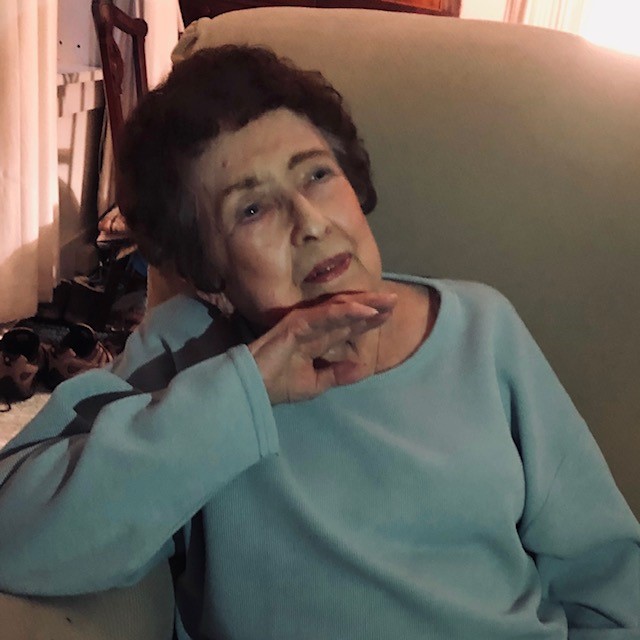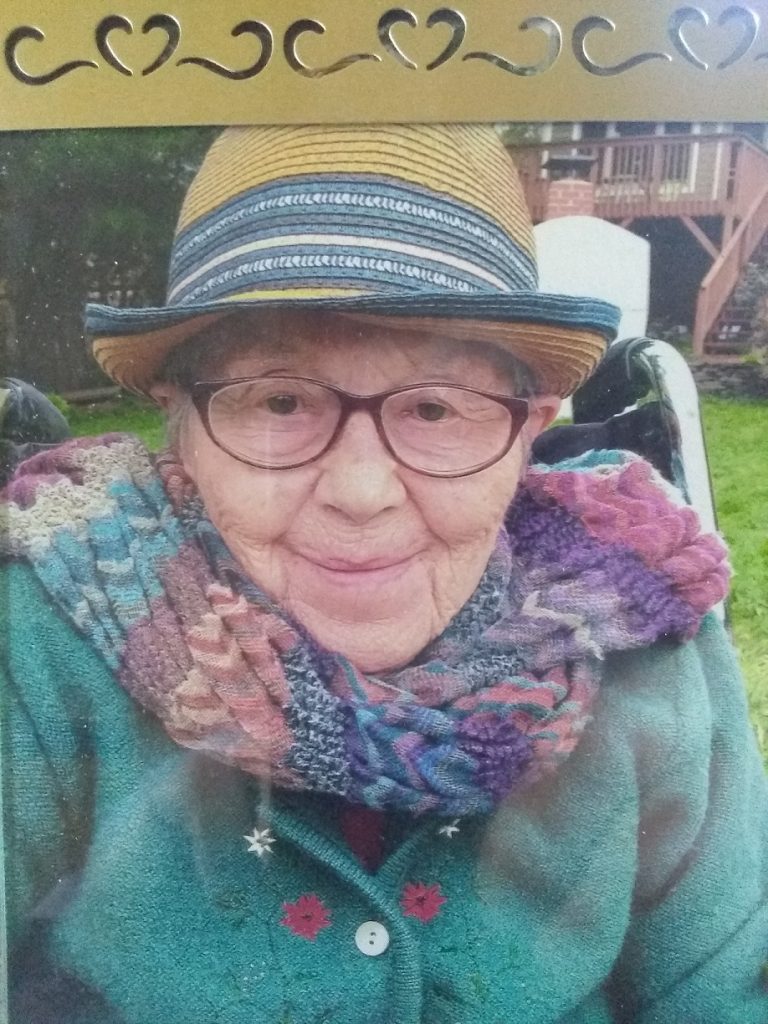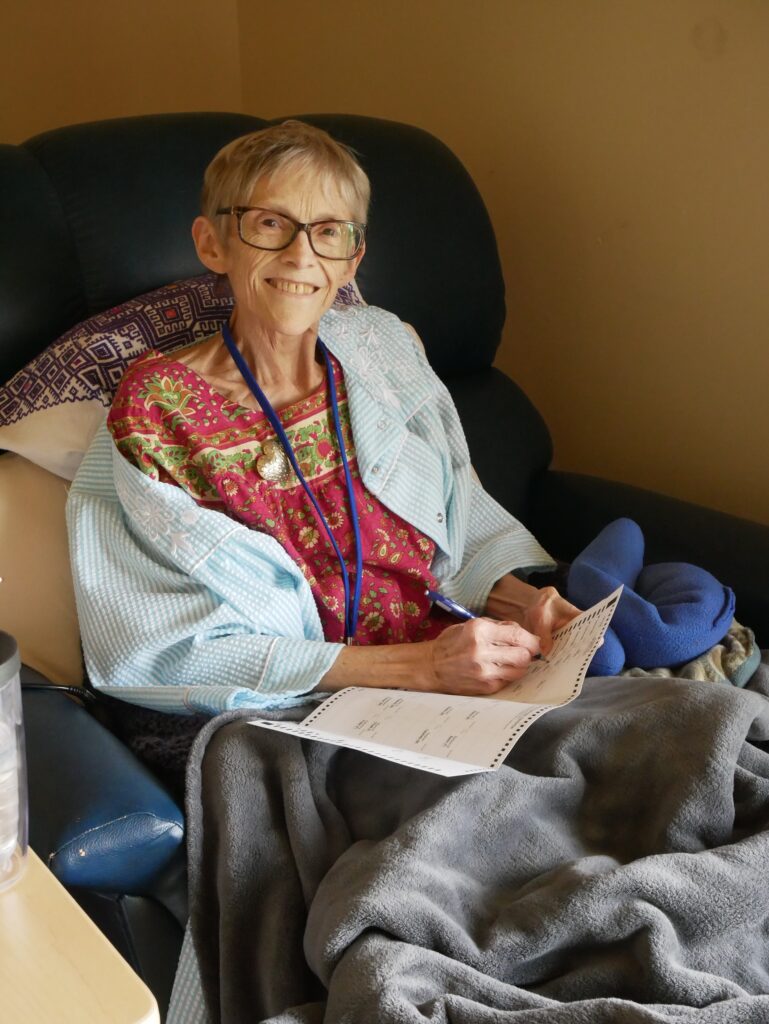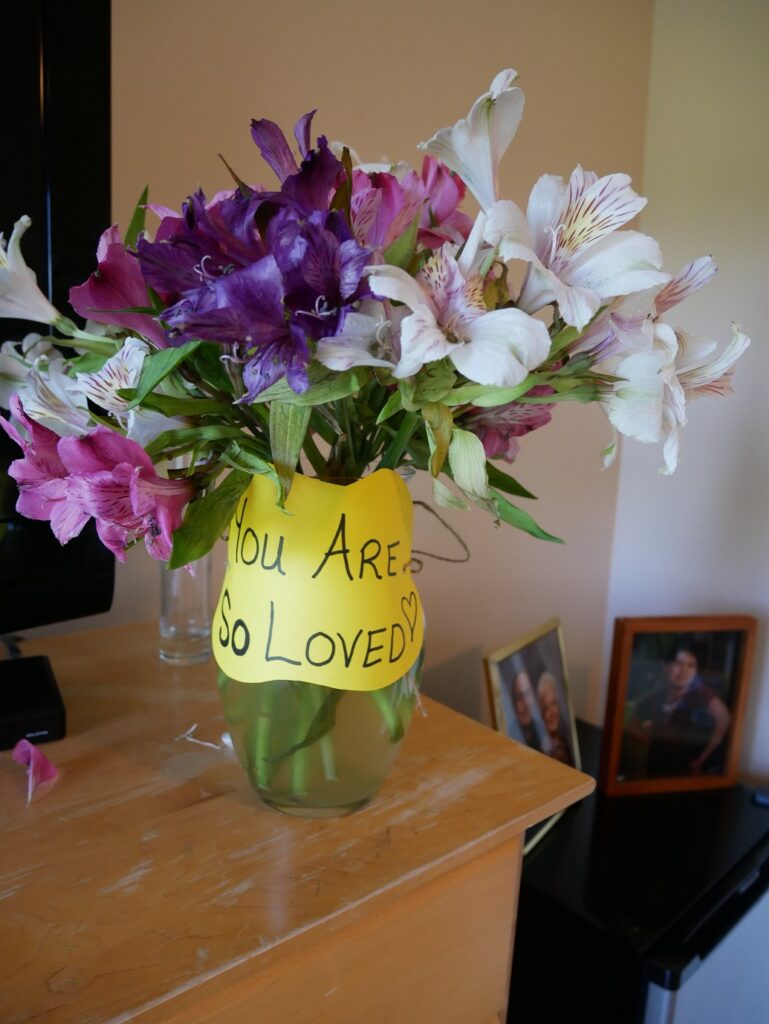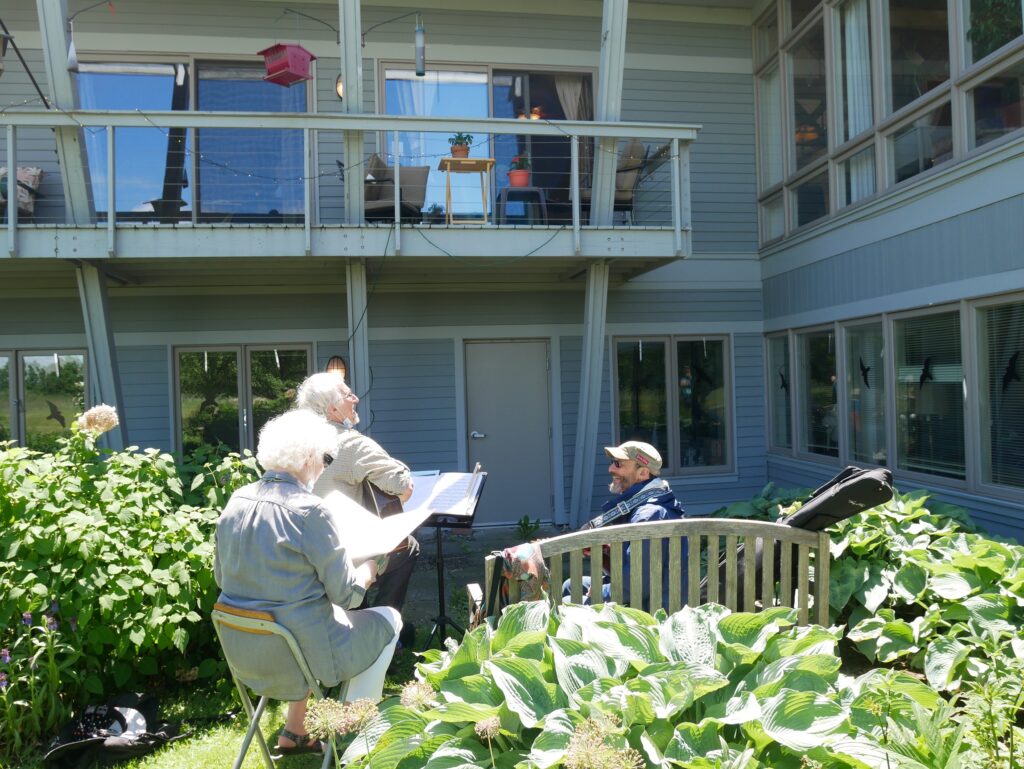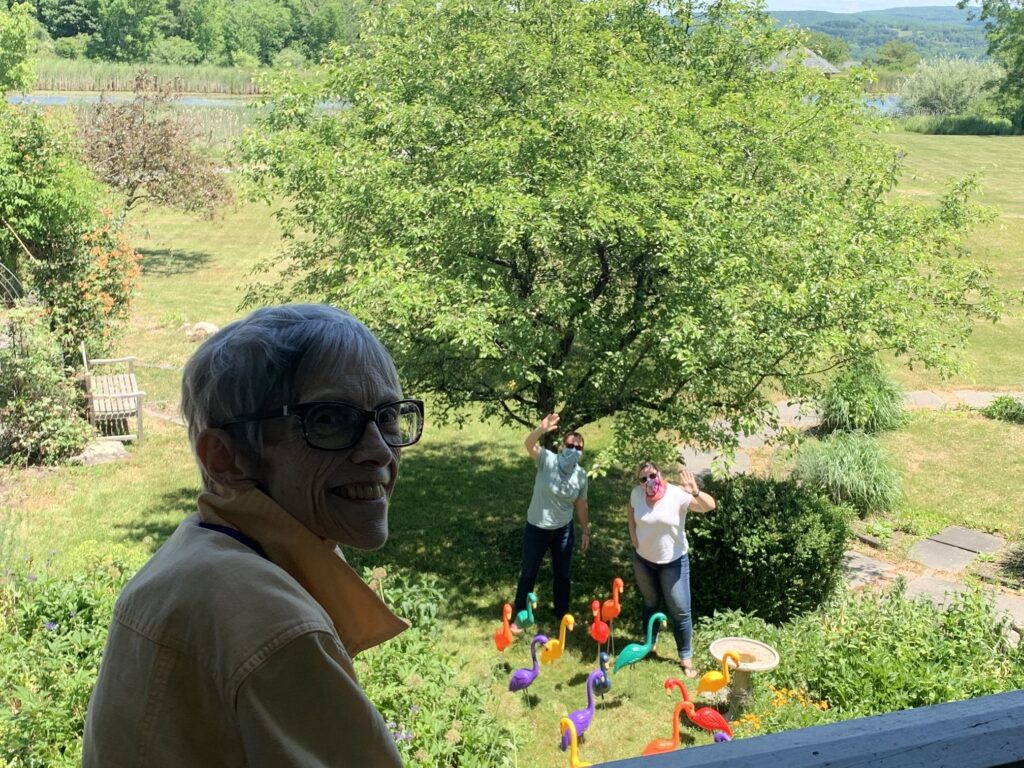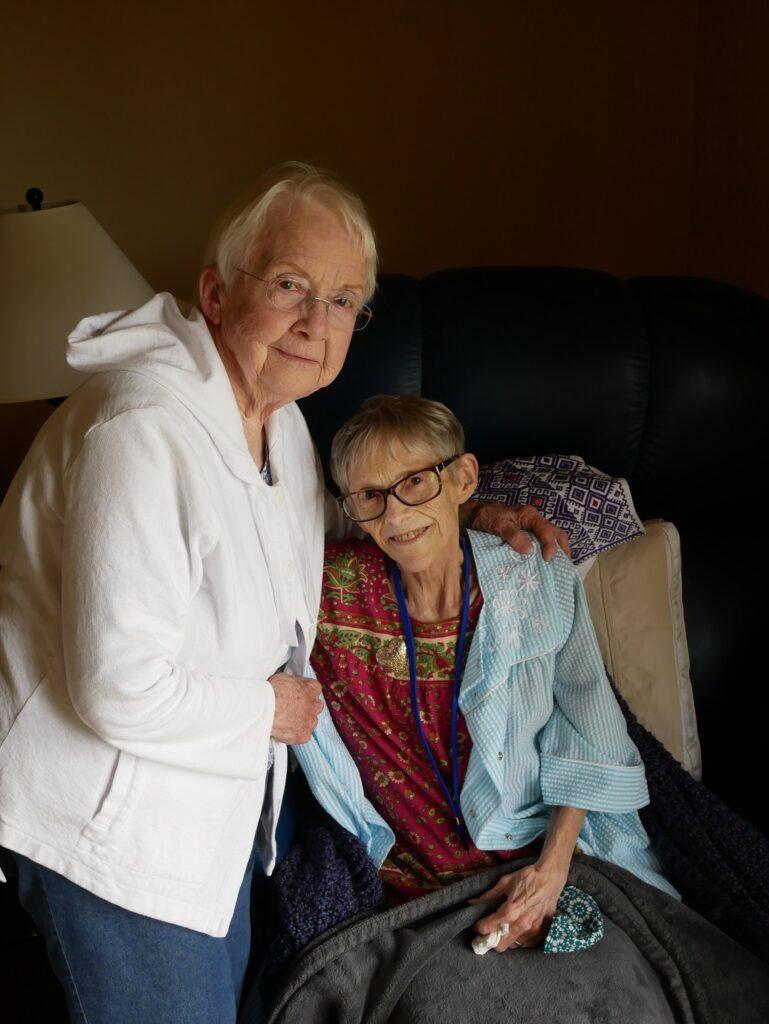by Sarah Gowin
It wasn’t until I sat down to write this piece that I realized how difficult the last couple of years have been. Five people I loved died. I couldn’t have made it through without the help of Hospicare.
In the summer of 2021, two of my friends were dying. Karin Montin was from Montreal. Our families have summer homes in Sandy Cove, Nova Scotia, and we met on the Bay of Fundy beach when I was nine. In 2019, she was diagnosed with the first of two forms of breast cancer. Because of the pandemic, I couldn’t cross the border to visit her. She died on August 9, 2021. I have fifty years of letters from her which I haven’t been able to bear to start to read.
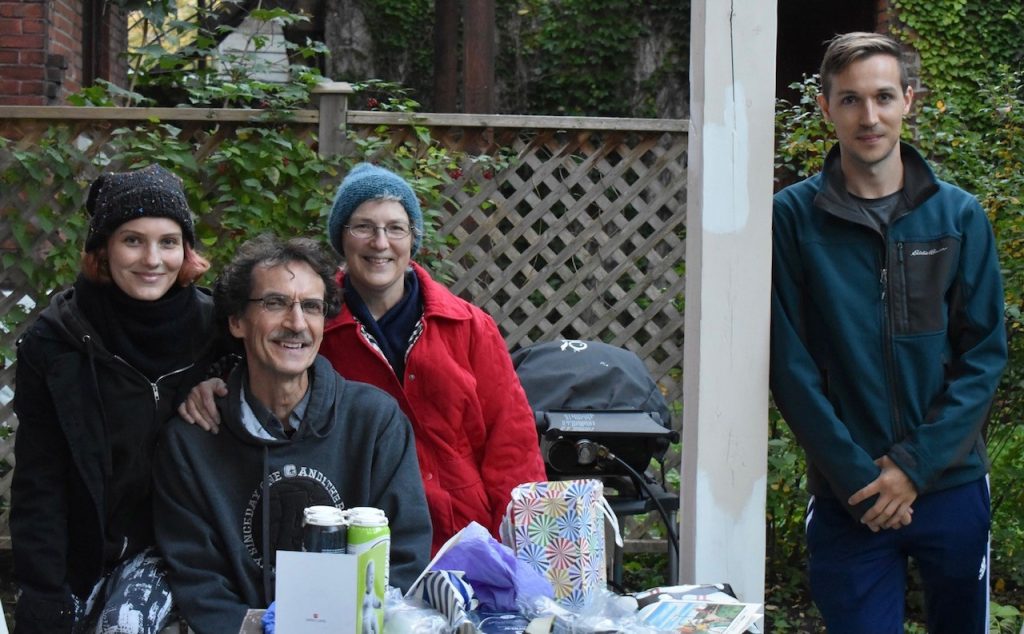
Another friend was also my neighbor. We walked together every other day for years. She was diagnosed with stage four pancreatic cancer in March 2021. She was a recent widow and had just started adjusting to living alone. My husband Paul and I really miss her and her partner. My friend and walking partner died on August 7, 2021.
When I realized that my friends were going to die at about the same time, I felt overwhelmed. I contacted Laura Ward, manager of psychosocial services and a bereavement counselor at Hospicare. I was eligible for grief counseling, free of charge. The counseling helped me get my feet back on the ground. Laura helped me with my grief, and also helped me learn how to support others who were grieving.
That Autumn, my first cousin Elizabeth Bancroft was diagnosed with lung cancer. Elizabeth, her sister Mary-McLean, my brother Robin, and I inherited the Nova Scotia property that our grandparents bought in the 1920s. The four of us managed one Zoom conversation to talk about our childhood memories. Elizabeth died July 3, 2022. Mary-McLean is the surviving member of her family of four.
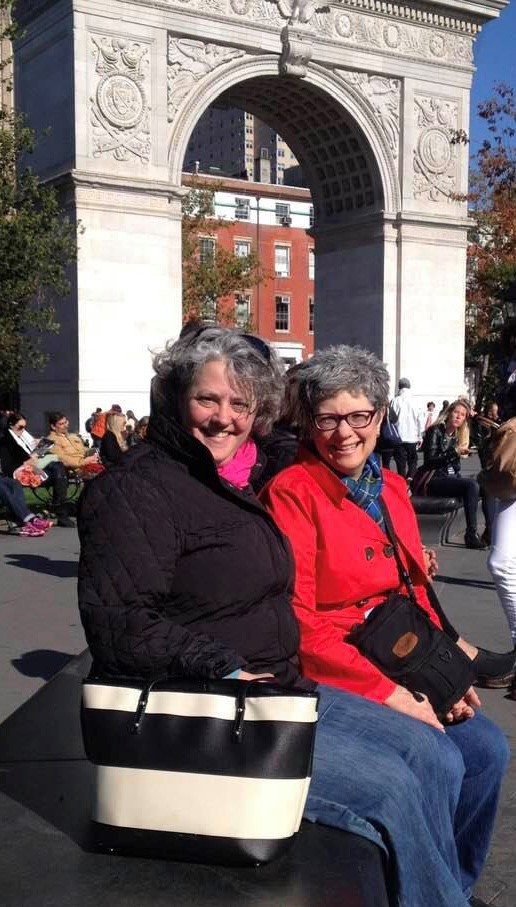
Also that Autumn, our daughter-in-law’s father Jim Carlson started to decline. He had been in a memory care assisted living facility for about a year because of vascular dementia. He died on September 27, 2022. Paul and I were very sad to lose our co-grandparent, but most difficult was feeling for Jim’s wife Harriet, daughter Erica, son-in-law Josh, and our two grandchildren.
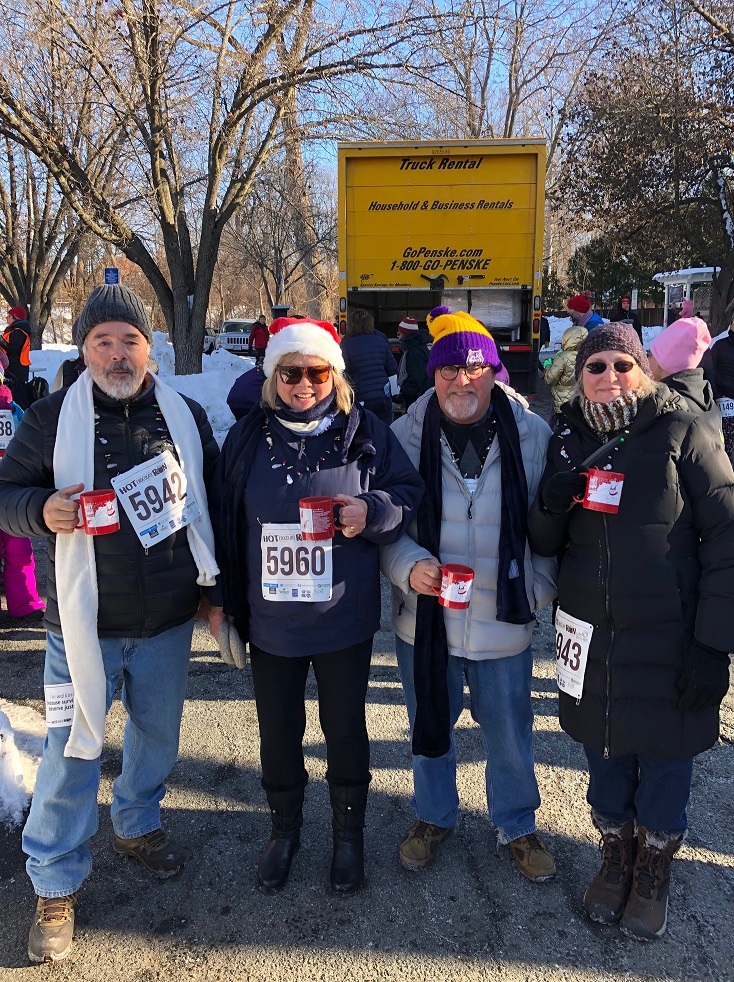
During my months of working with Laura Ward, she often asked me about my mother DG, who was in her nineties, and had lived at Bridges Cornell Heights for almost seven years. Her dementia was worsening, so there were always small losses as I adjusted to her decline. In late December 2022, when DG was 93, her physician Dr. Lucia Jander referred DG to Hospicare. We were unbelievably fortunate that Dr. Jander is also the medical director of Hospicare, so the transition was seamless. DG already trusted Dr. Jander, so even when she didn’t remember what hospice was, I could tell her that Dr. Jander sent a nurse or an aide, or a new medication, and DG would accept it. Thankfully, DG had already signed a MOLST, so her wishes for end-of-life treatment were already documented.
DG had first-rate care from Hospicare until she died on April 1, 2023. The Hospicare team was also there to support me. I had no idea the breadth of the hospice services until the nurse, Fran, did the initial intake with DG and me. Within the next couple of days, I was contacted by at least six people from our hospice team. Valentina scheduled the aide, Meg, who came to DG’s house at Bridges three mornings a week for an hour to get her up and clean — often a Herculean task. Wendy scheduled the volunteer, Monica, who visited DG regularly, and also got to know the other residents, and spent time with all of them sparking lively conversations. The spiritual counselor, Edie, had wonderful talks with DG about the glass Celtic crosses hanging in her windows, and about her beliefs. This was a great comfort to me. I was able to communicate directly with the social worker, Edna, who made several suggestions that relieved DG’s anxiety and pain. In the final weeks, the nurse Jessica played a key role.
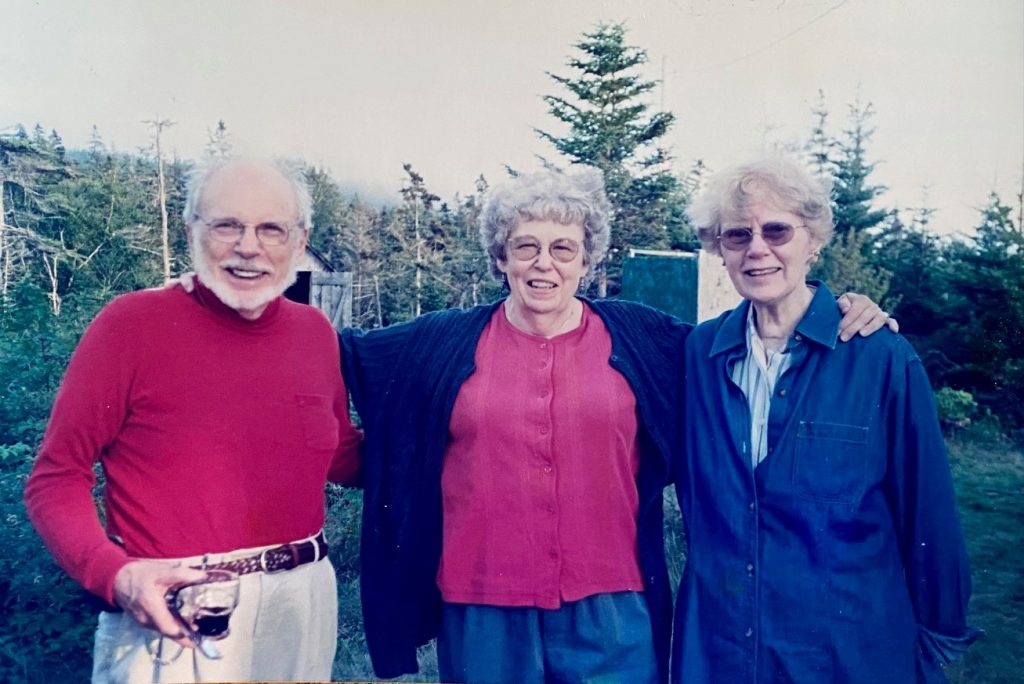
I was so glad that DG had months of hospice care, because she grew comfortable with the people who were helping her. We were also extremely fortunate that everyone at Bridges knew DG so well, and they made it possible for her to stay in her own room, which is what she always wanted. She talked about loving her big beautiful windows until the day she died.
When my mother was referred to Hospicare, I went back to talk with Laura Ward as pre-bereavement. Because she already knew a lot about DG, I didn’t have to start at the beginning, but Laura already knew about the complexities.
I had some strengths in caring for my mother. I could be her advocate, communicate with family and friends, help her clarify her memories, and interpret for her when her speech became hard to understand. I could hold her hand and look into her eyes. Stacy at Bridges taught me how to adjust her hospital bed. But I was very uncomfortable doing any further personal care, and the people at Bridges and Hospicare took care of that.
I made regular donations to Hospicare, because I had a sense of the number of staff hours that were devoted to DG’s care. As part of the 2023 Women Swimmin’ fundraiser, I will do Go the Distance, and knit items which I’ll donate to not-for-profit fundraisers. When enough time has passed, I plan to do the Hospicare training to become a volunteer. I’m so grateful that Hospicare has been here for 40 years, and I am counting on it being around for the next 40.
